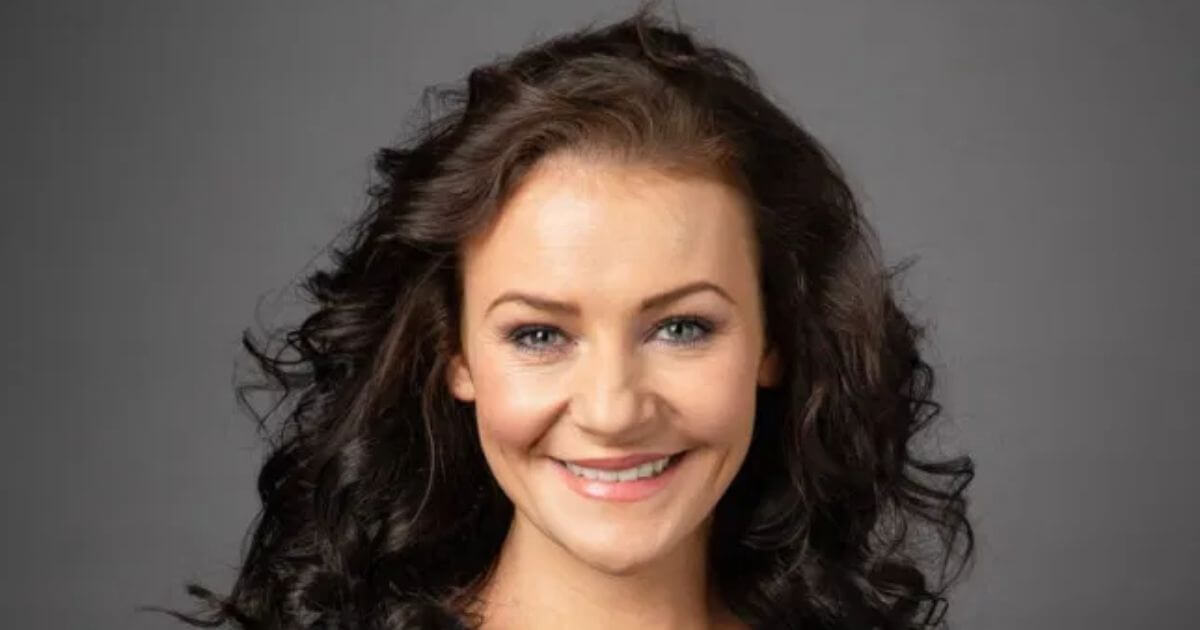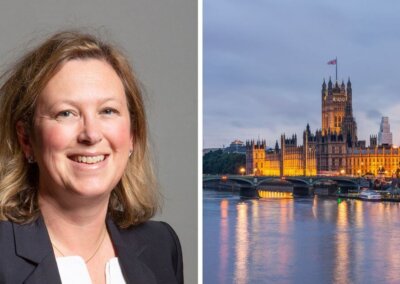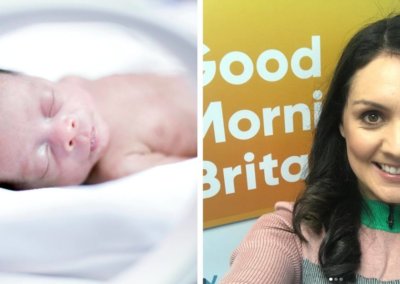Coronation Street actress, Kerri Quinn, has said she is “thrilled” to play a pro-life activist in an upcoming BBC drama.
The Belfast actress, known for her role as the fiery Vicky Jefferies in Coronation Street, will play a pro-life activist in the upcoming BBC drama ‘The Awakening’ about the new abortion regime in Northern Ireland.
Quinn, who has a child herself, lost her brother Kevin at just three years of age due to a hole in his heart.
The 37 year-old actress said: “I play a pro-lifer which I was delighted about because my whole family are pro-life, so it was a role I really wanted to portray and portray properly”.
“[My friends] have one view and I have another which is okay, that’s life, it’s one of those things. I based the character very much on my mum who comes at it from a very different angle having lost a child”.
“I think that definitely impacts on how you feel about it. I think that’s why I believe that life is absolutely precious, I really do, because I have watched friends and family lose children”.
“My mum and dad lost my brother Kevin when he was three and I think life experience plays a massive part in the matter. My mum is the most influential person in my life so I wanted to represent the pro life community as I know it”.
The actress went on to say that she thinks the drama will create important conversations around the topic of abortion: “[I]t was just amazing to be working on something which is going to create quite a hype… it’s obviously going to provoke a reaction from both sides and but [sic] I was thrilled to be a representative of the pro-life community”.
“I think there will be a lot of controversy around the piece but controversy that needs to happen I think, so I’m really excited to see how it’s received”.
Northern Ireland’s extreme abortion regime
In 2019, in the absence of a functioning Northern Ireland Assembly, politicians in Westminster’s House of Commons and House of Lords voted to force radical abortion legislation on the province.
The new regime allows abortion up to the point of birth for all disabilities, including cleft lip, club foot and Down’s syndrome.
Abortion is available de-facto on demand through to 24-weeks and available on-demand, without conditionality up to 12 weeks of pregnancy, for the first time in the UK, allowing for sex-selective abortion to be available on-demand.
From the introduction of abortion in Northern Ireland to the middle of October 2020, more than 700 abortions took place.
In response to a written question, submitted by Traditional Unionist Voice MLA Jim Allister, Health Minister Robin Swann disclosed 719 terminations took place between 31 March and 14 October.
The tragic figure shows an additional 55 lives have been lost to abortion since the Belfast Telegraph reported on 2 October that 664 terminations had taken place.
‘Every death a tragic loss’
Commenting on the figures, Mr Allister said there is a “shameful” lack of attention being given to the 719 lives lost to abortion compared to the 563 lives lost to COVID-19 during the same time period.
Strong majority of people in Northern Ireland against the law change
Polling from Savanta ComRes conducted ahead of the law change showed that 66% of women and 70% of 18-34-year-olds in Northern Ireland rejected abortion law being imposed on Northern Ireland from Westminster. The strongest support among age groups surveyed came from 18-34-year-olds, with 70% agreeing that they did not want abortion law imposed on Northern Ireland.
This opposition to a law being imposed on Northern Ireland was mirrored in the responses to a Government consultation on the law change with 79% of respondents opposed to any abortion provision in Northern Ireland beyond what was previously permitted.
Right To Life UK spokesperson, Catherine Robinson, said: “While it is great to hear that the story of a pro-life activist is included in the drama, there are so many other stories to be told of the positive impact that Northern Ireland’s previous abortion law had on people in Northern Ireland”.
“We are hoping that the writers have ensured that it is made clear in the drama that the vast majority of people in Northern Ireland were opposed to the law change and that they make efforts to feature some of the stories of the 100,000 people who are alive today because of Northern Ireland’s previous abortion law”.
“It is also important that they show the positive impact that this abortion law had on protecting the community of people with Down’s syndrome in Northern Ireland. The latest available figures show that 90% of children diagnosed with Down’s syndrome before birth are aborted in England and Wales. Northern Ireland had a very different approach under their previous law. Disability-selective abortion for Down’s syndrome was not permitted and there was a culture of welcoming and supporting people with this disability rather than eliminating them”.
“This was reflected directly in the latest figures under the previous law (2016) from the Department of Health in Northern Ireland, which show that while there were 52 children born with Down’s syndrome, in the same year, only 1 child from Northern Ireland with Down’s syndrome was aborted in England and Wales”.
“Sadly the law which protected babies with Down’s syndrome has now been replaced with a regime which allows them to be aborted right through to birth”.
“Actresses like Kerri Quinn are a great encouragement for the pro-life movement. Her bold proclamation of her pro-life views will hopefully inspire others to be bold too”.
“Quinn is absolutely right that this drama will likely create controversy but it is controversy that is absolutely needed. The abortion regime in Northern Ireland without proper parliamentary debate and the strong opposition to the law change from people in Northern Ireland was totally ignored”.
“The abortion regime in Northern Ireland is one of the most extreme in world. It allows abortion up to birth for disabled children and even permits sex-selective abortions where, typically, baby girls are aborted for the crime of being girls. This barbarism is controversial and should be controversial. We are yet to see how Kerri’s character will be presented, but hopefully, this drama will go some small way towards bringing Northern Ireland’s radical abortion regime into public debate and hold the MPs in Westminster to account for what they have done”.











